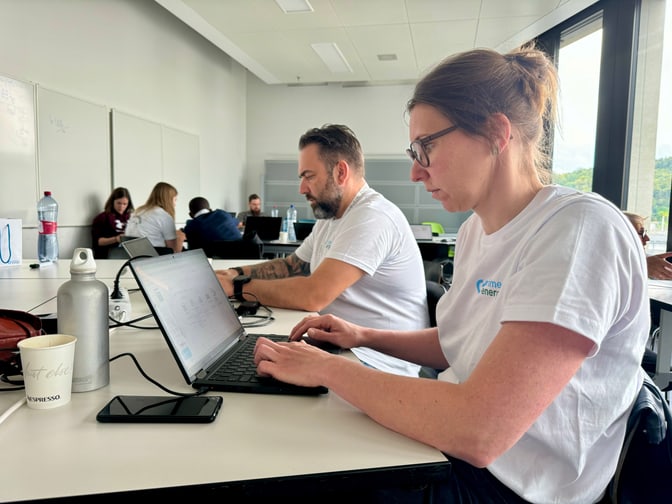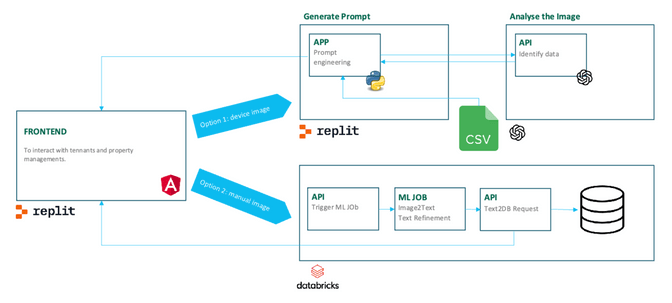Having participated in the Energy Data Hack Days since its inception in 2019, I count myself among the “veterans” of the event. This annual gathering in Brugg brings together data enthusiasts and energy experts. These experts present pressing challenges related to the energy transition. Teams form around each challenge and explore potential solutions by building prototypes based on real data.
Decarbonizing, Decentralizing, and Digitizing Electricity
This year, the focus was on being able to better anticipate electricity consumption and production. Electrification and the shift to renewable energy sources are currently key parts of strategies for reducing CO2 emissions. However, 250,000 highly volatile photovoltaic installations add immense complexity to the existing 1,500 hydroelectric plants and a handful of nuclear power plants. Since the electricity grid must remain balanced at all times, stakeholders need the most accurate predictions possible to manage costs and maintain grid stability. Organizations like BKW, Swissgrid, and the Swiss Federal Office of Energy (OFEN) proposed challenges addressing this issue.
Reducing Unnecessary Consumption
Decarbonizing doesn’t just involve changing energy sources—it also requires reducing overall consumption. This year, I joined a challenge by Primeo Energy, which aimed to identify households in their distribution network with energy-intensive appliances. The task included finding ways to encourage these households to replace their appliances—such as an old refrigerator—with newer, more energy-efficient models.
To identify energy-intensive appliances from a household’s consumption profile, it’s crucial to understand their typical “energy footprint.” For this purpose, the team accessed raw data on 38,680 refrigerators from the EPREL database. Key fields included model, volume, annual energy consumption in kWh, and the market introduction date. Refrigerators were grouped by volume to calculate the average annual energy consumption. However, data for models released before 2020 was sparse, so the team used linear extrapolation to estimate averages in cases of insufficient data.

Technical, Economic, and Ergonomic Feasibility
Identifying households with energy-saving potential is just the first step. To make an impact, it’s also necessary to motivate appliance owners to take action. Part of the group therefore set out to understand the housing situation of Swiss households in more detail. In 2022, only 36% of households (1.4 million) owned their homes, while 2.4 million were renters, with 60–70% of those homes looked after by property management agencies. For a renter to replace a refrigerator, they need approval from their property management. It is therefore crucial to incentivize these agencies to support the transition by investing in more efficient appliances, even though it’s the renters that benefit directly from lower electricity bills.

The team sketched out potential solutions, including leveraging ESG performance reports of companies and using incentives from energy providers and municipalities to improve energy efficiency.
They also developed an initial prototype for a user-friendly interface allowing renters to scan their refrigerator manual or take a photo of the appliance. The app, powered by AI, would analyze the data to assess the appliance’s energy performance. This information could then be shared with property managers and landlords, enabling them to easily evaluate whether outdated appliances should be replaced to enhance energy efficiency.
Liip’s Contribution to the Energy Transition
For Liip, this event offers an excellent opportunity to collaborate on real-world cases with energy sector professionals, further strengthening our commitment to the energy transition. We aim to increase our positive impact on Sustainable Development Goal #7 by offering solutions like ergonomic interfaces for households or open-technology-based data platforms. As an expert in business models for data technologies, I contributed to enhancing the viability of our use case, increasing the chances of success for the prototype developed during the Energy Data Hack Days. My goal is clear: to use our expertise to support the energy sector in accelerating the energy transition.
